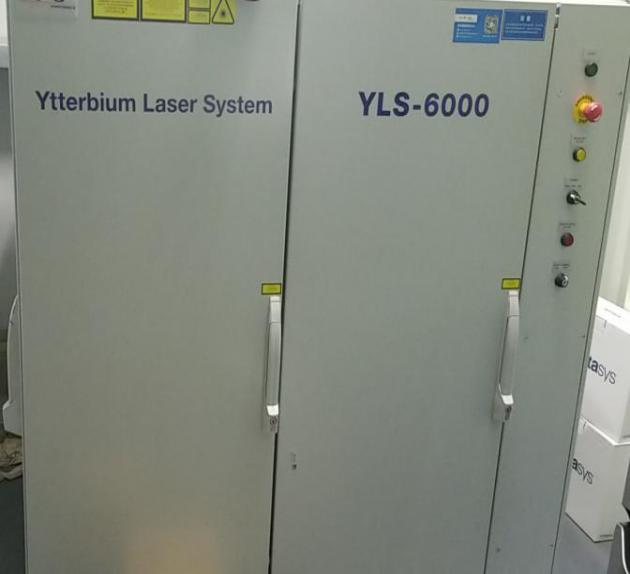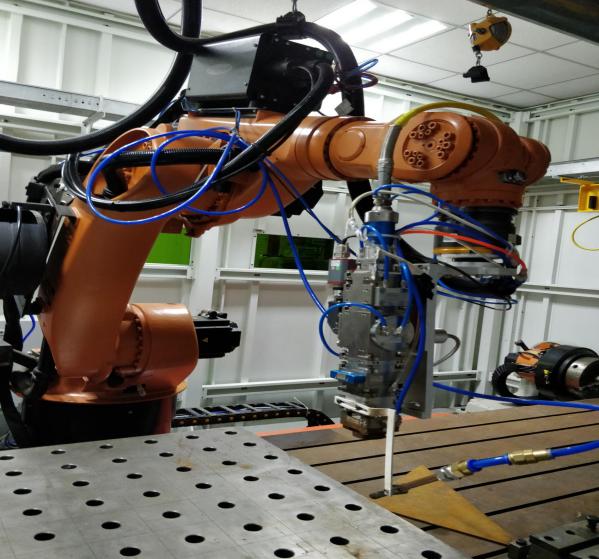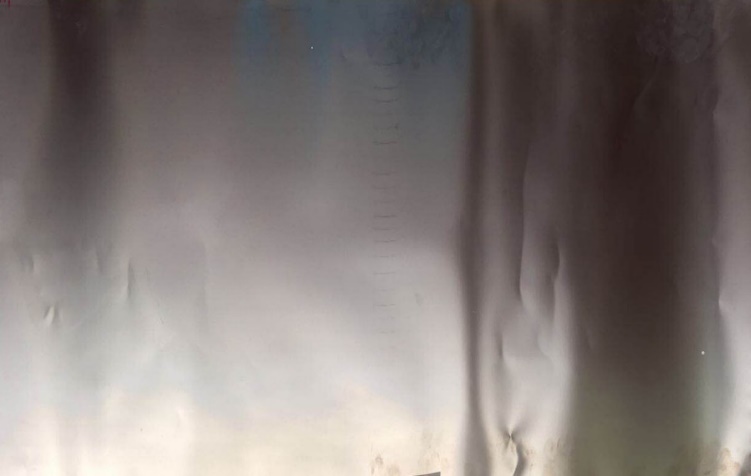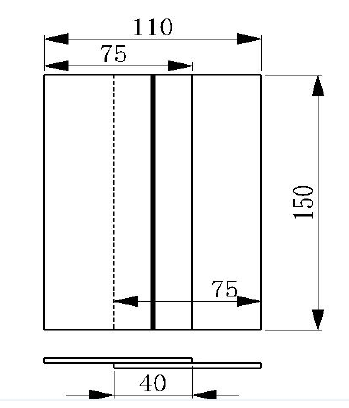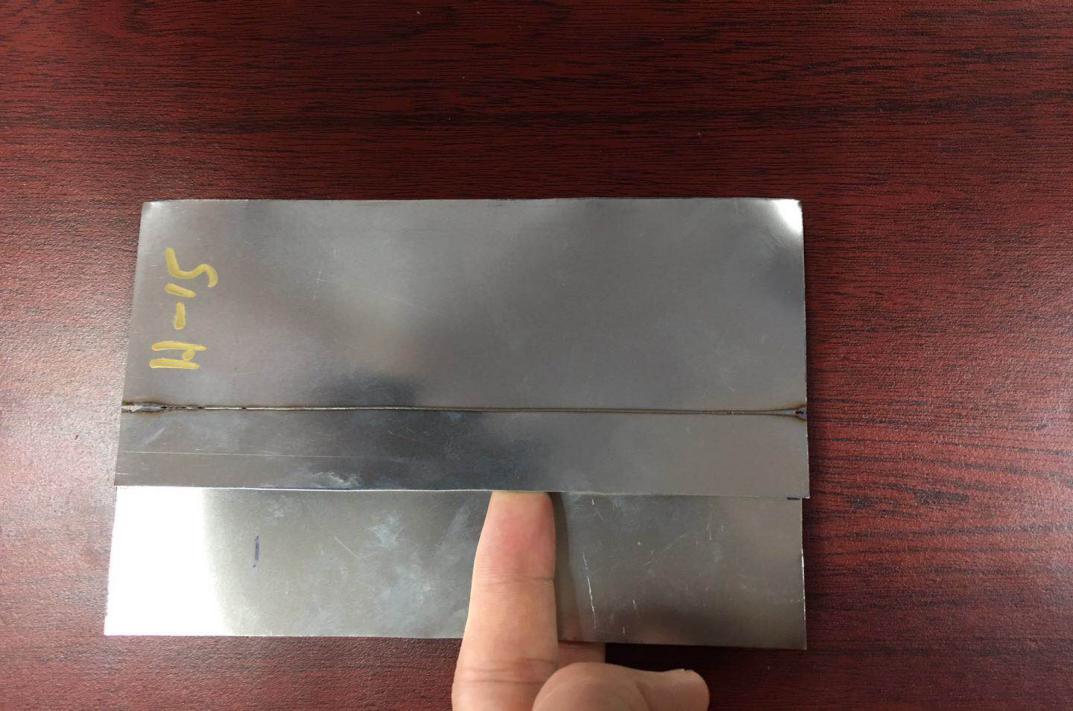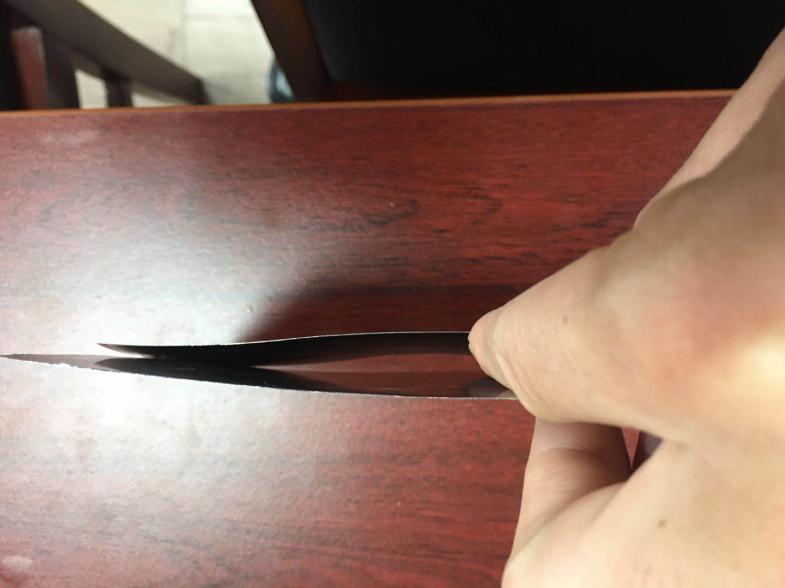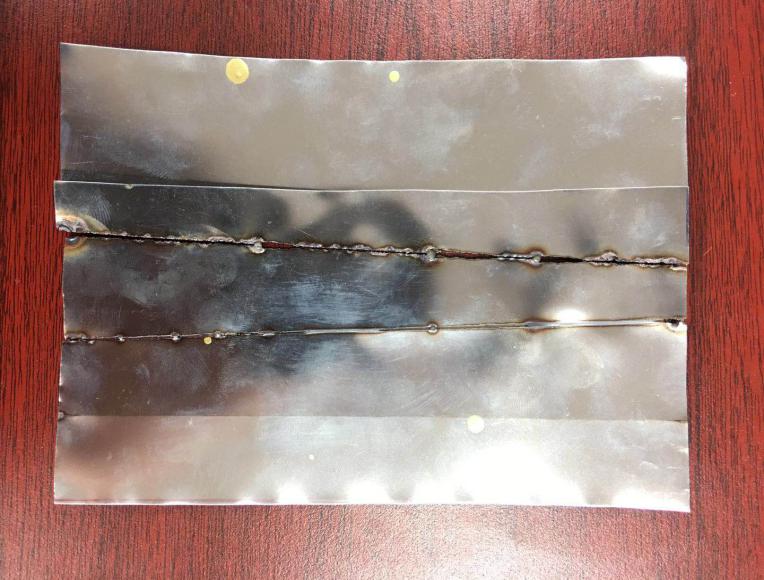不锈钢薄板光纤激光焊接接头组织结构研究毕业论文
2020-04-15 17:34:28
摘 要
SUS304不锈钢指的是具有奥氏体组织的一种合金钢,随着科技的不断发展,制造业、工业的发展极为迅速,其中304不锈钢占据举足轻重的地位,因其在绝大多数环境中具有良好的耐腐蚀性,所以被广泛应用于船舶、汽车制造、航空航天、建筑、核能、压力容器、生物工程、化学工程等行业中。对于这种不锈钢常见的连接方法就是焊接,随着技术的不断发展,光纤激光焊接已经逐渐替代其他传统激光焊接方法,因为这种焊接方法有着能量密度高、热影响区小、焊缝质量高、焊接速度较快等特性,所以被各大领域广泛的使用。
本课题采用0.1mm和0.2mm 的SUS304不锈钢薄板为基材,采用高速激光叠焊工艺制备304不锈钢封装袋,研究YLS-6000型光纤激光发生器高速激光焊接时,焊缝表面形貌、组织以及力学性能在不同的工艺参数(激光功率、焊接速度)下具有的变化规律,使用金相显微镜对焊缝的形貌和组织进行观察,了解接头微观组织结构,通过对试样进行拉伸剪切性能测试,可对焊缝接头的力学性能做更进一步的研究与分析,为SUS304不锈钢的高速焊接提供选择依据。所得结论如下:
(1)随着激光功率的不断增加,焊缝宽度和热影响区逐步变宽,焊缝背面宽度呈现增大趋势;焊缝正面和背面颜色越来越深,相比之下背面的颜色变化程度更大;而且随着焊接功率的增大,组织柱状晶的宽度也在不断呈现出增加的趋势;随着激光功率的不断增加,搭接焊接不锈钢试样能承受的拉剪力不断增大,接头抗拉剪性能不断增强,但增强趋势逐渐降低。
(2)随着焊接速度的减小,焊缝正面的宽度变大,焊缝越来越不均匀,飞溅现象也变得严重,焊缝背面颜色因氧化也越来越深;与此同时,焊缝的冷却速率减小,组织柱状晶宽度有所增加;两结合面的宽度变宽,抗拉伸能力也有所提升,力学性能逐渐加强。
(3)SUS304不锈钢薄板的激光焊接接头主要由焊缝区、热影响区、熔合区组成。从力学性能检测结果中可以发现,焊接接头的硬度也是不一样的,焊缝区最佳,熔合区最差。因为熔合区组织不均匀,晶粒的增大程度较严重,冷却成为粗晶粒,强度和硬度都有所下降,而且塑性和韧性也比较差。
关键词:304不锈钢 高速激光焊 光纤激光 组织结构
Study on the structure of stainless steel sheet fiber laser welded joint
ABSTRACT
SUS304Stainless steel is a kind of alloy steel with austenitic organization, with the continuous development of science and technology, manufacturing, industrial development is very rapid, of which 304 stainless steel occupies very important position, because its are in the vast majority of environment has good corrosion resistance, so they are widely used in ship, automobile manufacturing, aerospace, construction, nuclear power, pressure vessel, biological engineering, chemical engineering and other industries. To this common method of connection is stainless steel welding, with the continuous development of technology, optical fiber laser welding is gradually replace other traditional laser welding method, because this kind of welding method has a high energy density, small heat affected zone, high welding quality and welding speed faster, so each big field widely used.
This topic use the 0.1mm and 0.2mm of SUS304 stainless steel sheet as the backing material, fold adopts high speed laser welding process of preparation of 304 stainless steel sealing bag, research YLS - 6000 type high speed laser optical fiber laser generator, when welding the weld surface morphology, structure and mechanical properties in different process parameters (laser power, welding speed) with the change rule, using metallographic microscope to observe morphology and organization of weld, understand the joint microstructure, through to the sample tested tensile shear properties, the mechanical properties of the weld joint is available for further research and analysis, It provides the basis for high speed welding of SUS304 stainless steel. The conclusions are as follows:
With the continuous increase of laser power, the weld width and heat affected zone gradually become wider, and the back width of the weld presents an increasing trend. The color of the front and back of the weld is getting darker and darker, while the color of the back changes more greatly. And with the increase of welding power, the width of the columnar crystal is also increasing. With the continuous increase of laser power, the tensile shear force of the lap welded stainless steel sample increases continuously, and the tensile shear performance of the joint increases continuously, but the enhancement trend decreases gradually.
With the decrease of welding speed, the width of the front side of the welding seam becomes larger, the welding seam becomes more and more uneven, the splash phenomenon becomes serious, and the color of the back side of the welding seam becomes darker and darker due to oxidation; At the same time, the cooling rate of weld decreases and the width of columnar crystal increases. The width of the two bonding surfaces has been widened, and the tensile resistance has also been improved, and the mechanical properties have been gradually strengthened.
The laser welded joint of SUS304 stainless steel sheet is mainly composed of weld zone, heat affected zone and fusion zone. It can be found from the test results of mechanical properties that the hardness of welded joint is different, the weld zone is the best, the fusion zone is the worst. Due to the uneven microstructure of the fusion zone, the grain size increases seriously and becomes coarse grain when cooled. The strength and hardness are decreased, and the plasticity and toughness are poor.
Keyword: 304 stainless steel; High speed laser welding; Fiber laser; Organization struct
目录
第一章 绪论 1
1.1. 课题背景与意义 1
1.2. 奥氏体不锈钢特性 2
1.3. 激光焊接技术 3
1.3.1. 激光焊接原理 3
1.3.2. 激光焊接特点 5
1.4. 不锈钢激光焊接接头研究现状 5
1.5. 本文主要研究内容 8
第二章 试验设备、材料及方法 9
2.1. 试验设备 9
2.2. 试验材料 10
2.3. 试验方法 10
2.3.1. 不锈钢薄板高速激光焊接 10
2.3.2. 微观组织和形貌分析 13
2.3.3. 成分及物相分析 13
2.3.4. 力学性能测试 13
第三章 焊接参数对高速焊接接头的影响 15
3.1. 激光功率的影响 15
3.1.1. 激光功率对焊缝表面形貌和组织结构的影响 15
3.1.2. 激光功率对力学性能的影响 19
3.2. 焊接速度的影响 20
3.2.1. 焊接速度对焊缝表面形貌和组织结构的影响 20
3.2.2. 焊接速度对力学性能的影响 24
3.3. 经济成本分析 25
第四章 结论与展望 26
4.1. 结论 26
4.2. 展望 27
参考文献 28
致谢 30
绪论
课题背景与意义
不锈钢指的是具有抵抗常见的腐蚀作用的一种合金钢的总称[1]。随着科技的不断发展,制造业、工业的发展极为迅速,其中不锈钢占据举足轻重的地位,因其在绝大多数环境中具有良好的耐腐蚀性,所以被广泛应用于船舶、汽车制造、航空航天、建筑、核能、压力容器、生物工程、化学工程等行业中。在不锈钢的产量中,奥氏体不锈钢占据很大一部分,为70%左右。奥氏体不锈钢指的是在Cr元素含量约为18%的不锈钢中添加8%-10%的Ni元素,从而形成的在常温下具有奥氏体相的不锈钢。
随着工业的发展,其中应用最为广泛的是304奥氏体不锈钢,它们在绝大多数自然环境中具有良好的耐腐蚀性,较高韧性、较强的塑性以及无磁性等特点,其屈服强度和低碳钢大致相似,低温冲击韧性也比较好,适合在低温环境下工作,且其在高温环境下的抗氧化能力也比较好,为此,奥氏体不锈钢被用于高温工作环境中,其工作温度最高可达到760℃以上。由此可见,对304奥氏体不锈钢的产品性能要求也会变得越来越高。为了满足这些性能要求,提高产品加工精度,对不锈钢的连接方式的研究显得格外重要,不锈钢采用焊接的连接方式最为常见。可是传统的焊接方式,对于精度要求较高的薄板,会有较大的裂纹和形变的产生。为了避免这种情况发生,故采用能量密度较高的光纤激光焊接来完成。为此,对304 奥氏体不锈钢的焊接研究变的十分有意义。
因为304奥氏体不锈钢薄板的光纤激光焊接较传统的焊接方法相比,具有高能量密度、较高精度、穿透深度较好、适应性较强、焊接速度较快、焊缝较窄以及热变形小等优点,所以在汽车制造业、核能等新兴技术领域得到广泛的应用,并逐渐受到各个国家的重视。随着工业水平的发展,采用传统激光器焊接304奥氏体不锈钢薄板后,其力学性能较差,很大几率会出现热裂纹或者晶粒粗大等问题。为此,目前对304不锈钢薄板采用光纤激光焊接实验,从而确定合适的焊接工艺参数[2],提高精度要求,解决热裂纹及晶粒粗大等常见问题。本篇文章分别对0.1mm和0.2mm的304不锈钢薄板利用光纤激光为能量来源进行搭接焊实验研究,从而明确焊缝的表面形貌、组织以及力学性能等随着工艺参数(激光功率和焊接速度)变化而变化的规律[3]。因此对不锈钢产品质量的优化、性能的提升以及产品精度的把控具有很大的意义。
奥氏体不锈钢特性
奥氏体不锈钢指的是常温常压下具有稳定奥氏体组织的一类不锈钢,在不锈钢产品生产中,其主要的组成部分是奥氏体不锈钢[4]。年生产量比其他种类的不锈钢都要高。奥氏体不锈钢在常温常压下的屈服强度大约为210MPa,强度相对于别的钢制品来说比较低,虽然不能通过相变的方法来起到强化作用,但可以通过采用低温硬化的手段从而有效的进行强化。本文中的SUS304奥氏体不锈钢的国标牌号是06Cr19Ni10,也叫18/8不锈钢[5]。因为此种不锈钢具有良好的低温冲击韧性,所以可在低温环境下工作。当然,因其在高温下的抗氧化能力也比较强,在一般的高温环境下的工作也是可以的,其温度至少可达到760℃左右。
以上是毕业论文大纲或资料介绍,该课题完整毕业论文、开题报告、任务书、程序设计、图纸设计等资料请添加微信获取,微信号:bysjorg。
相关图片展示:
